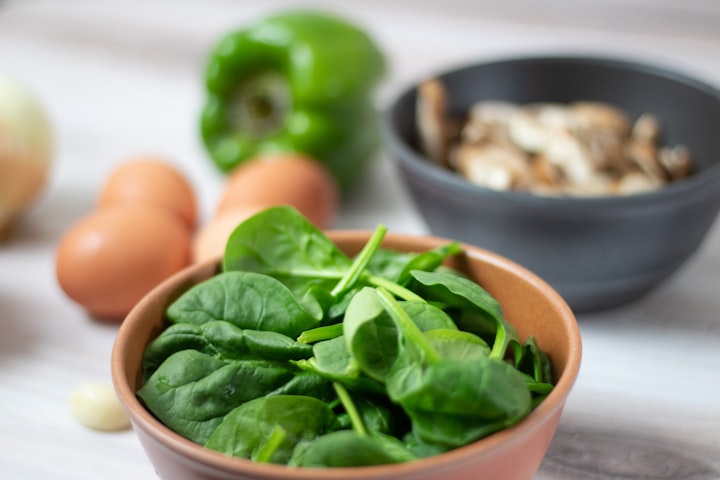Most Nutrient-Dense Vegetables
Most nutrients vegetable you should try

Vegetables, which are high in fibre, vitamins, minerals, and antioxidants, are an essential part of a balanced diet.
They're also hearty, tasty, and versatile, working well in salads, soups, smoothies, and sandwiches.
In fact, when I'm feeling particularly inventive, I enjoy heaping on the vegetables and trying with new or unique produce section elements to make recipes like pizza and spaghetti more healthful.
While all veggies are healthful, a few stand out for their high nutritional content and tremendous health advantages.
Here are some of the most nutrient-dense vegetables on the market.
1. Spinach

This leafy green is one of the most nutrient-dense vegetables on the market.
Because 1 cup (30 grammes) of raw spinach has 16 percent of the Daily Value (DV) for vitamin A and 120 percent of the DV for vitamin K, all for only 7 calories.
Spinach is also high in antioxidants, which may help lower your illness risk. Dark leafy greens like spinach are high in beta carotene and lutein, two antioxidants linked to a lower risk of cancer, according to one study.
According to another study, spinach may boost heart health by lowering blood pressure.
2. Broccoli

Broccoli is high in glucosinolate, a sulfur-containing plant component, as well as its derivative sulforaphane.
Sulforaphane's capacity to protect against cancer has been studied extensively in animal and test-tube experiments.
This cruciferous vegetable may also aid in the prevention of other chronic diseases.
In one tiny trial, broccoli sprouts were found to lower levels of many inflammatory markers connected to chronic diseases including heart disease.
Raw broccoli has 77 percent of the daily value for vitamin K, 90 percent of the daily value for vitamin C, and a healthy quantity of folate, manganese, and potassium in just one cup (91 grammes).
3. Red cabbage

Another cruciferous vegetable high in antioxidants and beneficial characteristics is red cabbage. 1 cup (89 grammes) raw includes 2 grammes of fibre and 56% of the daily value for vitamin C.
Anthocyanins, a group of plant components that contribute to red cabbage's characteristic colour and several health advantages, are also abundant in red cabbage.
Red cabbage extract alleviated oxidative stress in rats with elevated cholesterol levels in one animal investigation.
In another study, red cabbage microgreens dramatically reduced LDL (bad) cholesterol levels and weight gain in mice fed a high-fat diet.
4. Carrot

Carrots are high in vitamin A, with 1 cup providing 119 percent of the daily value (128 grams).
Beta carotene, an antioxidant that gives them their brilliant orange colour and may help prevent cancer, is also present. This chemical is converted into vitamin A by your body.
In fact, a study including over 57,000 adults found that eating at least 2–4 carrots per week was linked to a 17 percent lower risk of colorectal cancer over time.
Carrots may also lessen the risk of lung cancer, according to a study of 18 research.
Finally, many other important elements, such as potassium and vitamins C and K, are abundant in these beloved root vegetables.
5. Kale

Kale, like other leafy greens, is known for its high nutritional and antioxidant content.
Potassium, calcium, copper, and vitamins A, B, C, and K are all abundant in just 1 cup (21 grammes) of raw kale.
In one tiny trial, eating kale with a high-carb dinner was more beneficial than eating a high-carb meal alone at reducing blood sugar rises.
According to another study, drinking kale juice can help lower blood pressure, cholesterol, and blood sugar levels.
6. Beets

Beets are a colourful, adaptable root vegetable that are high in fibre, folate, and manganese while being low in calories.
They're also high in nitrates, which your body converts to nitric oxide, a substance that helps blood arteries expand.
The nitrates in beet juice may help lower blood pressure levels, according to a study of 11 studies. As a result, your risk of heart disease may be reduced.
Furthermore, beets and their juice have been related to better physical performance and endurance.
About the Creator
Health care
Health care






Comments
There are no comments for this story
Be the first to respond and start the conversation.